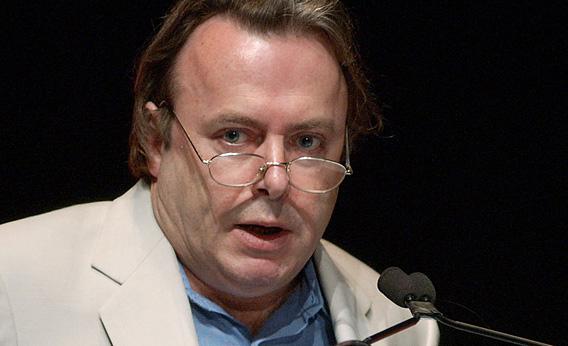See Slate’s full tribute to the life of Christopher Hitchens. Read Slate’s complete collection of Christopher Hitchens’ columns.
Writer, philosopher, gadfly, and Slate contributor Chrisopher Hitchens died on Thursday of complications from esophageal cancer. While drinking and smoking may have contributed to his untimely passing, Hitchens didn’t regret either habit: “Writing is what’s important to me, and anything that helps me do that—or enhances and prolongs and deepens and sometimes intensifies argument and conversation—is worth it to me.” After Steve Jobs died, we explained how LSD may enhance creativity among innately creative people. Does alcohol improve your writing?
It’s unclear. Great American novelists have been hitting the bottle pretty regularly over the last few decades. According to one study, 71 percent of prominent 20th-century American writers at least flirted with alcoholism. (Only 8 percent of the general population abuses alcohol.) Ernest Hemingway once wrote to F. Scott Fitzgerald: “Of course you’re a rummy. But you’re no more of a rummy than Joyce is and most good writers are.” Despite such colorful anecdotal evidence, it’s extremely difficult to prove that booze helped these writers along. Many have suggested that great writers tend to suffer from underlying psychiatric disorders that increase both their creativity and their likelihood to drink. Others note that both writers and alcoholics are typically loners, so it’s no surprise that the categories would coincide. Laboratory studies have failed to settle the debate. It’s difficult to measure creativity and even harder to establish a placebo group—the subjects are often college students, who have a keen sense for whether or not their drinks have been spiked.
Consider a 1992 study on alcohol and creative writing. Participants were asked to write creatively for 10 minutes, using a couple of obscure paintings for inspiration. The test group, with an average blood alcohol content of 0.09, wrote significantly more words than their sober colleagues, and a higher percentage of their sentences included figurative language and novel word combinations. The study had problems, though. Many psychologists believe that thinking you’re drunk, rather than the drunkenness itself, may increase verbosity and lower inhibitions. Despite some heroic efforts by the researchers, the placebo group in this study knew that their beverages contained very little alcohol, so it was impossible to separate the chemical effects from the expectation effects. Verbosity and the use of novel word combinations are also incomplete measures of creative writing. The researchers didn’t evaluate whether the drunk students’ writing had real artistic merit or even made much sense.
While the effect of alcohol on creative writing is still very much in dispute, a number of other studies suggest that drinking has no effect, or even a negative effect, on other forms of creativity. A 2002 experiment showed that drinking doesn’t improve performance in word association games. (When asked to evaluate their own performance, however, the drinkers gave themselves higher scores.) In a 1992 study different from the one described above, researchers asked students to devise as many uses for an object as possible. The group who hadn’t had anything to drink, and who knew they were sober, handily defeated both those who were drunk and those who thought they were drunk.
Got a question about today’s news? Ask the Explainer.
See Slate’s full tribute to the life of Christopher Hitchens. Read Slate’s complete collection of Christopher Hitchens’ columns.
